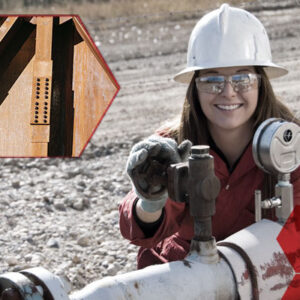Introduction

Importance of Coating Inspection
Coating inspection plays a pivotal role in ensuring the integrity, quality, and longevity of coatings applied to various surfaces and structures. Coatings serve a multitude of purposes, including protection against corrosion, wear and tear, chemical exposure, aesthetics, and even environmental concerns. However, the effectiveness of coatings is heavily dependent on how well they are applied and maintained.
Coating inspection is essential to verify that coatings meet the specified standards, adhere correctly to the substrate, and provide the intended protection and performance. By conducting thorough inspections, potential defects or inconsistencies in the coating application can be identified and rectified promptly, preventing costly repairs or rework in the future. Hence, the importance of coating inspection cannot be overstated in achieving successful and durable coating solutions.
Purpose of Certification

Certification for coating inspectors serves several critical purposes within the industry. Firstly, it establishes a standard of competency and expertise for individuals tasked with inspecting coatings. This ensures that inspectors possess the necessary knowledge, skills, and understanding of industry standards and practices.
Secondly, certification provides a level of assurance to employers, clients, and stakeholders that the inspector is qualified and capable of conducting accurate and reliable coating inspections. Thirdly, it helps in standardizing inspection procedures and methodologies, fostering consistency and reliability across different projects and applications.
Moreover, certification encourages continuous professional development, prompting inspectors to stay updated with evolving technologies, materials, and best practices. Overall, the purpose of coating inspector certification is to enhance the quality and reliability of coating inspections, leading to improved coating performance, safety, and overall project success.
Understanding Coating Inspection

Coating inspection is a critical process in various industries, ensuring the quality and integrity of coatings applied to different surfaces. This section provides an in-depth understanding of coating inspection, including its definition, basics, the role and responsibilities of a coating inspector, and an overview of types of coatings and their applications.
Definition and Basics of Coating Inspection
Coating inspection involves the systematic assessment of coatings applied to surfaces to ensure they adhere to specified standards, provide corrosion protection, and maintain desired aesthetic and functional properties. The inspection process encompasses evaluating coating materials, application techniques, and the overall coating system’s performance.
Role and Responsibilities of a Coating Inspector

Coating inspectors are responsible for monitoring coating applications, assessing quality, and ensuring adherence to standards. Their role is vital in maintaining the structural integrity of various assets. Key responsibilities include:
Inspection Planning: Developing inspection plans based on project requirements, industry standards, and the type of coating being applied.
Quality Control: Overseeing the coating application process to ensure compliance with specified standards, procedures, and quality control measures.
Documentation and Reporting: Maintaining detailed records of inspection activities, results, and any deviations from standards. Generating comprehensive reports for project stakeholders.
Problem Resolution: Identifying and addressing any issues or discrepancies during the coating process, providing solutions to ensure the final coating meets desired specifications.
Communication: Collaborating with project teams, contractors, and clients to convey inspection findings, recommendations, and progress updates effectively.
Significance of Certification

Certification in the field of coating inspection is of paramount importance due to several reasons. Coating inspectors play a critical role in ensuring the quality and durability of coatings applied to various surfaces. The significance of certification can be highlighted through the following points:
Advantages of Being a Certified Coating Inspector
Ensuring Quality Assurance: Certification ensures that coating inspectors possess the necessary knowledge, skills, and expertise to assess the quality of coatings effectively. This includes understanding the properties of different coatings, proper application techniques, and adherence to industry standards.
Compliance with Regulations and Standards: Coating inspectors need to comply with industry-specific regulations and standards. Certification validates their understanding of these regulations, ensuring that inspections are conducted according to the prescribed guidelines, codes, and safety measures.
Enhanced Professional Credibility: Being certified enhances an inspector’s professional credibility within the industry. It demonstrates their commitment to upholding high standards of work, which can lead to more job opportunities and professional growth.
Industry Recognition and Credibility

Certification as a coating inspector holds a high level of recognition and credibility within the industry, and it is widely acknowledged by employers, clients, and peers. This recognition stems from several key factors:
Standardized Knowledge and Competence: Certification establishes a standard level of knowledge and competence that employers can rely on when hiring coating inspectors. It assures clients that the inspector has undergone a thorough and standardized assessment of their skills and capabilities.
Adherence to Industry Standards: Certified coating inspectors are trained to follow industry best practices and adhere to established standards. This adherence ensures that inspections are conducted consistently and accurately, leading to reliable results and client satisfaction.
Client Confidence and Trust: Clients tend to have more confidence and trust in the expertise of certified coating inspectors. The certification is often a requirement in contracts and tenders, giving certified inspectors a competitive advantage in securing projects.
Coating Inspector Certification Programs

Requirements and Eligibility Criteria
To pursue certification as a coating inspector, individuals must meet specific requirements and eligibility criteria. These criteria typically include:
Education and Experience: Prospective candidates should have a minimum level of education (often a high school diploma or equivalent) and relevant work experience in the field of coatings, corrosion control, or a related industry.
Training and Courses: Completion of specific training courses related to coating inspection, surface preparation, corrosion control, and coating application is typically a requirement. These courses should be approved or recognized by the certification body.
Work Experience Hours: Candidates often need to document a certain number of work experience hours in the relevant field. The number of required hours varies based on the certification level being pursued.
Examination Process and Structure

The examination process for coating inspector certification is designed to assess the candidate’s knowledge, understanding, and application of coating inspection principles and practices. Here’s an overview of the typical examination process and structure:
Written Examination: Candidates are required to take a written exam that covers various topics, including coating technology, corrosion prevention, surface preparation, application methods, safety, and environmental regulations.
Practical Examination: Some certification programs incorporate a practical examination where candidates demonstrate their ability to apply theoretical knowledge in real-world scenarios. This may include tasks such as coating application, surface preparation, and equipment handling.
Oral Examination: In some cases, candidates might face an oral examination to further assess their understanding of coating inspection concepts and their ability to communicate effectively.
Successful completion of both written and practical examinations, meeting the required passing score, and satisfying any other certification-specific criteria will lead to the award of the respective coating inspector certification. Coating inspector certifications validate a professional’s competence and contribute to enhancing the quality and durability of coating projects, ultimately ensuring the protection of assets and the environment.
Post-Certification: Career Opportunities and Growth

After obtaining a certification as a coating inspector, individuals open up a plethora of career opportunities and avenues for professional growth within the coating and inspection industry. In this section, we will delve into the various job roles available for certified coating inspectors and discuss salary expectations along with job market trends.
Job Roles for Certified Coating Inspectors
Coating Inspector/Quality Assurance Inspector: Certified coating inspectors primarily assess and ensure the quality of applied coatings on various surfaces. They inspect coating processes, verify adherence to industry standards, and report any deviations or issues.
Corrosion Control Specialist: Coating inspectors may specialize in corrosion control, focusing on preventing or mitigating the impact of corrosion on structures and surfaces. They recommend appropriate coatings and corrosion prevention techniques.
Painting Supervisor/Foreman: With experience and expertise, coating inspectors can transition into supervisory or managerial roles, overseeing painting crews, managing projects, and ensuring compliance with specifications and standards.
Salary Expectations and Job Market Trends

Salary Expectations: Salaries for certified coating inspectors vary based on factors such as experience, location, job role, and industry. On average, entry-level inspectors can expect a salary ranging from $40,000 to $60,000 per year. With experience and specialization, senior coating inspectors or those in managerial roles can earn upwards of $80,000 to $100,000 annually.
Job Market Trends: The demand for certified coating inspectors is steadily increasing due to the growing need for infrastructure maintenance, construction projects, and industrial facilities. Industries such as oil and gas, marine, construction, and aerospace continually seek qualified professionals to ensure the quality and durability of coatings. Additionally, sustainability and environmental concerns drive the need for eco-friendly coating solutions, further bolstering the job market for certified coating inspectors. Staying updated with evolving technologies and environmental regulations is crucial for career advancement and market competitiveness.
Continuous Professional Development

Continuous professional development is crucial for certified coating inspectors to stay updated with the latest industry advancements, technologies, and best practices. Here are ways to ensure continuous growth:
Attend Workshops and Seminars: Participate in workshops, seminars, and conferences related to coatings, corrosion protection, and inspection techniques to expand knowledge and network with industry professionals.
Pursue Advanced Certifications: Explore advanced certifications or specialized training programs in areas such as corrosion control, advanced coating applications, or project management to enhance expertise.
Engage in Industry Associations: Join industry associations related to coating inspection and corrosion prevention, actively participate in discussions, and access resources to stay informed about industry trends.

Read Industry Publications: Regularly read industry journals, magazines, and publications to stay informed about the latest developments, case studies, and technological advancements in coating inspection.
Networking and Collaboration: Establish professional relationships with fellow inspectors, industry experts, and professionals in related fields to exchange knowledge, experiences, and potential career opportunities.
Conclusion

In conclusion, obtaining a Coating Inspector Certification is a crucial step for professionals in the corrosion prevention and coating industry. This certification not only enhances one’s knowledge and skills in the field but also validates their expertise, ensuring compliance with industry standards and regulations. For those aspiring to attain this certification, the CORCON Institute of Corrosion stands as a reputable institution offering comprehensive courses tailored to provide the necessary training and education.
By availing courses through the CORCON Institute of Corrosion, individuals can access top-tier educational resources and guidance, paving the way for a successful and fulfilling career in coating inspection and corrosion prevention. Invest in your professional development today and unlock a world of opportunities within the corrosion protection domain.
Image Reference: Freepik
Disclaimer: All trademarks, logos, and brand names are the property of their respective owners. All company, product, and service names used in this website are for identification purposes only. Use of these names, trademarks, and brands does not imply endorsement.

